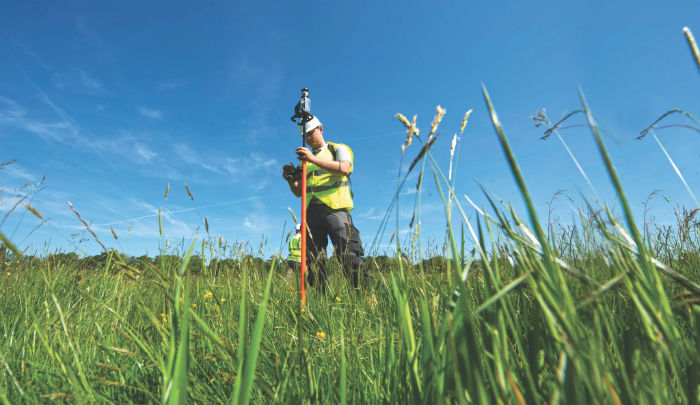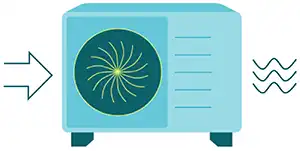
Take our energy saving quiz
How energy efficient are you?
Brush up your knowledge by taking our energy-saving quiz. At the end, you’ll be given your smart score!
Which uses more energy?
Correct!
Correct. Slow cookers are generally a more energy efficient way to cook larger quantities of food whereas air fryers are used for smaller meals. Batch cooking food in larger quantities in a slow cooker can save you up to £112 per year. Despite this, 41% of people that took our recent survey told us that they do not own a slow cooker at all!
That's actually incorrect!
The answer is actually air fryers. Slow cookers are generally a more energy efficient way to cook larger quantities of food whereas air fryers are used for smaller meals. Batch cooking food in larger quantities in a slow cooker can save you up to £112 per year. Despite this, 41% of people that took our recent survey told us that they do not own a slow cooker at all!
Which uses more energy?
Correct!
Correct, a hair dryer typically uses more energy. With daily usage, a hair dryer can cost 3.6p per use which over the course of a month could set you back on average £1.13. Hair straighteners typically cost 2.6p per use, setting you back around 83p per month.
That's actually incorrect!
That’s not quite right, a hair dryer typically uses more energy. With daily usage, a hair dryer can cost 3.6p per use which over the course of a month could set you back on average £1.13. Hair straighteners typically cost 2.6p per use, setting you back around 83p per month.
Which is most expensive?
Correct!
That’s right! Just one bath can use up to 150 litres of water and can cost up to 90p. Showering, on the other hand, only sets you back around 43p, meaning that you could take two showers a day (under 10 minutes long) and still save money! 67% of our survey takers are already opting to take daily showers over baths – a simple but effective way to bring the monthly bills down!
That's actually incorrect!
That’s not quite right. Just one bath can use up to 150 litres of water and can cost up to 90p. Showering, on the other hand, only sets you back around 43p, meaning that you could take two showers a day (under 10 minutes long) and still save money! 67% of our survey takers are already opting to take daily showers over baths – a simple but effective way to bring the monthly bills down!
Which uses more energy?
Correct!
Spot on. Over its lifetime, an LED bulb will typically cost around £19 however an incandescent bulb could set you back £152 across the same period. Check which bulbs you use in your home to make sure you aren’t paying for unnecessary energy usage.
That's actually incorrect!
Incorrect. Over its lifetime, an LED bulb will typically cost around £19 however an incandescent bulb could set you back £152 across the same period. Check which bulbs you use in your home to make sure you aren’t paying for unnecessary energy usage.
Which uses more energy?
Correct!
Correct! Desktop computers use up to 80% more energy than laptop computers. 56% of our survey respondants do not own a desktop computer, potentially leaving them with a lower energy bill at the end of the month.
That's actually incorrect!
That’s actually incorrect! Desktop computers use up to 80% more energy than laptop computers. 53% of our survey respondents use a laptop in place of a desktop computer each day, potentially leaving them with a lower energy bill at the end of the month.
Which uses more energy?
Correct!
True! It’s a close one, but turning all of your appliances such as TV and games consoles completely off at the socket after each use could save you up to £70 a year.
That's actually incorrect!
False! It’s a close one, but if you’re in the habit of overfilling your kettle, you could still be paying an unnecessary £58 each year.
Which uses more energy?
Correct!
That’s right! Optimise your energy usage by ensuring that the size of the pan matches the size of the heating element. Using a pan that is smaller than your cooker ring wastes more energy. For instance, using a 6″” pan on an 8″” cooker ring results in a wastage of over 40% of the heat generated by the burner.
That's actually incorrect!
Almost. Using a pan that is smaller than your cooker ring actually wastes more energy. For example, using a 6″” pan on an 8″” burner results in a wastage of over 40% of the heat generated by the burner.
Which is the more energy efficient way to dry your clothes?
Correct!
Yes! Tumble dryers use up to 5.2kwh on a full load and are one of the biggest culprits for using too much energy. Using your radiators to help speed up the process of air drying your clothes will only use 500w per hour setting you back just 20p, plus you can enjoy a warm house at the same time!
That's actually incorrect!
Not quite. Tumble dryers use up to 5.2kwh on a full load and are one of the biggest culprits for using too much energy. Using your radiators to help speed up the process of air drying your clothes will only use 500w per hour setting you back just 20p, plus you can enjoy a warm house at the same time!
How often should you bleed your radiators?
Correct!
Correct! Your radiators should be bled 1-2 times per year! Sometimes, air gets trapped in the radiator leading to cold patches and poor heat flow. Bleeding your radiator reduces the time it takes them to heat up and helps heat your home more efficiently, which in turn can help you save money on your energy bills!
That's actually incorrect!
Incorrect! Your radiators should be bled 1-2 times per year! Sometimes, air gets trapped in the radiator leading to cold patches and poor heat flow. Bleeding your radiator reduces the time it takes them to heat up and helps heat your home more efficiently, which in turn can help you save money on your energy bills! “
Planting trees in your garden can help reduce energy used in your home by up to 30%
Correct!
Correct – the answer was true! By planting just three trees in your garden around your property can reduce energy usage by up to 30%! During colder winter months, trees and shrubbery create a natural insulation for your home, helping to keep the temperature higher and your energy bills low.
That's actually incorrect!
Incorrect – the answer was true! By planting just three trees in your garden around your property can reduce energy usage by up to 30%! During colder winter months, trees and shrubbery create a natural insulation for your home, helping to keep the temperature higher and your energy bills low.
What is the best way to make sure you're getting the most out of your heating oil?
Correct!
That’s the right answer! You should get a boiler service once a year to ensure your tank is in optimum working condition. Check out our boiler service guide for more information on our boiler services.
That's actually incorrect!
That’s not quite right. You should get a boiler service once a year to ensure your tank is in optimum working condition. Check out our boiler service guide for more information on out boiler services.
You can store oil for up to 2 months in a heating oil tank.
Correct!
Correct! As kerosene is a non-corrosive fuel, you can actually safely store oil for several years in a heating oil tank under the right conditions. “
That's actually incorrect!
The answer is actually false! As kerosene is a non-corrosive fuel, you can actually safely store oil for several years in a heating oil tank under the right conditions.
Is it more energy efficient to paint your radiators...
Correct!
Spot on! The Energy Saving Trust says that it’s best to keep them the standard white. By painting a radiator black, the paint itself can act as an insulator. This means less heat is transferred to the room.
That's actually incorrect!
Not quite. Some say black is a more efficient colour at absorbing and then giving off heat. However, the Energy Saving Trust says that it’s best to keep them the standard white. By painting a radiator black, the paint itself can act as an insulator, meaning less heat is transferred to the room.
How much can you save on your annual heating bill by turning your thermostat down by just one degree?
Correct!
Correct! By simply dropping your thermostat temperature by one degree, you can cut your heating bill by up to 10% every year, saving on average up to £115 per year.
That's actually incorrect!
Almost! By simply dropping your thermostat temperature by one degree, you can cut your heating bill by a massive 10% every year, saving on average up to £115 per year. “
Will your house heat up faster if you turn thermostat to...
Correct!
Correct! If you increase the target temperature beyond the number of degrees you actually want, the machine will heat up your home at the same speed but for a longer duration. Your thermostat will eventually reach the temperature you want, so be patient and wait for it to reach your desired heat instead.
That's actually incorrect!
Stop turning your thermostat to max! If you increase the target temperature beyond the number of degrees you actually want, the machine will heat up your home at the same speed but for a longer duration. Your thermostat will eventually reach the temperature you want, so be patient and wait for it to reach your desired heat instead.
Which will save you more on your energy each year?
Correct!
That’s right! Though turning appliances off at the socket can save you up to £70 per year, loft insulation is actually one of the most impactful measures in terms of savings and could save you up to £380 per year! A quarter of heat is actually lost through the loft, so insulation is a great way to stop this and save energy. Although most homes do have loft insulation installed, it is important to keep this topped up – almost 30% of our survey takers told us that they have taken the steps to add more insulation to their home.
That's actually incorrect!
Try again! Though turning appliances off at the socket can save you up to £70 per year, loft insulation is actually one of the most impactful measures in terms of savings and could save you up to £380 per year! A quarter of heat is actually lost through the loft, so insulation is a great way to stop this and save energy. Although most homes do have loft insulation installed, it is important to keep this topped up – almost 30% of our survey takers told us that they have taken the steps to add more insulation to their home.
Which is the better way to control your thermostat?
Correct!
Correct. Using your thermostat to keep your home at an ambient temperature prevents your heating system from using more fuel than necessary. A thermostat will heat the room until it reaches the desired or optimum temperature (typically between 18-21 degrees celsius). This reduces wasted energy as well as stopping your boiler from needing to work as hard to significantly raise the temperature of a room from cold to hot.
That's actually incorrect!
Incorrect! Using your thermostat to keep your home at an ambient temperature prevents your heating system from using more fuel than necessary. A thermostat will heat the room until it reaches the desired or optimum temperature (typically between 18-21 degrees celsius). This reduces wasted energy, as well as stopping your boiler from needing to work as hard to significantly raise the temperature of a room from cold to hot.
Your results
Here's your energy saving score! Thank you for taking part.

You're an... energy-efficiency newbie!
Don't worry, there might be some room for improvement - but you are now well on your way to becoming an energy-saving pro! With a little bit of knowledge and effort, you can start saving money and reducing your energy consumption in no time. Keep up the good work!
You're a... bright spark!
You clearly know a thing or two about smart ways to reduce your energy consumption. Keep up the good work and happy saving!
You're an... energy expert!
Congratulations - you aced it! Keep up the good work and remember, every small change can make a big difference!
Certas Chatter
View all "
alt="Boiler Care"
width="1920"
height="760"
loading="lazy"
/>
"
alt="Boiler Care"
width="1920"
height="760"
loading="lazy"
/>
 "
alt="Boiler Care"
width="1920"
height="760"
loading="lazy"
/>
"
alt="Boiler Care"
width="1920"
height="760"
loading="lazy"
/>
 "
alt="Boiler Care"
width="1920"
height="760"
loading="lazy"
/>
"
alt="Boiler Care"
width="1920"
height="760"
loading="lazy"
/>




